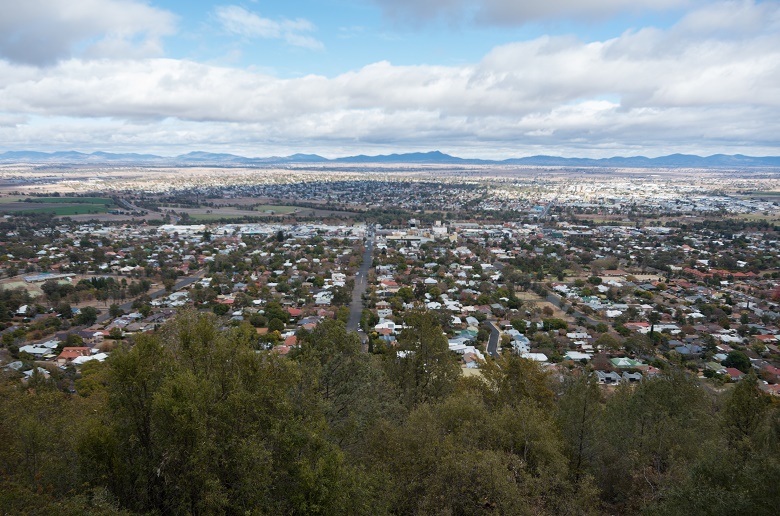
As the Morrison Government floats a plan to shift population growth beyond Sydney and Melbourne, Government News meets the regions attracting migrants.
In the midst of a mining boom eight years ago, the West Australian Shire of Dalwallinu was confronted with a dwindling population and a spike in job vacancies.
With hundreds of vacant houses and under-utilised facilities, locals realised that revitalisation was essential to stimulate the area’s economy.
This diminishing population compelled council to introduce a program in 2011 to see skilled migrants resettle into the region through the then 457 employer-sponsored visa scheme.
Since introducing hundreds of migrants into the region, the town has experienced a 15 per cent spike in their population – a figure matching the national rate of growth.
The program has also been instrumental to a more than twofold increase in the number of school children in the region.

Steven Carter, president of the Shire of Dalwallinu, says the council’s migrant program was critical to the town’s current position as one of only four country towns in the state with a growing population.
“It’s been hugely successful,” he tells Government News.
“Businesses have been able to source staff, migrants have integrated into the community particularly well and they’re now buying and building houses and bringing their extended family into the town and they’re now getting jobs,” he said.
The success of the project is largely thanks to council’s focus on assimilating migrants into the community, Cr Carter said.
English classes and initiatives such as a housing program and regular BBQ events have helped migrants to feel welcome in the community, he said.
The council also provided a migrant training program to incentivise businesses to take on new employees from diverse backgrounds, and employed a community liaison and support officer to help the new residents.
Locally-led approaches
While initiatives like the Morrison Government’s recent proposal to shift population growth beyond Sydney and Melbourne may open new visa pathways, community support is ultimately essential to encouraging migrants to live in regional and rural areas, says Jack Archer, CEO of the Regional Australia Institute.
The RAI’s analysis shows that Dalwallinu’s success story is not uncommon, finding that 151 of 550 regional areas surveyed have increased their population through overseas migration.
Bendigo in Victoria, Tamworth and Orange in NSW and Mount Gambier in South Australia are among the regions that have implemented similar projects to fill job vacancies, the RAI says.
Mr Archer says that migration is one of the best drivers of regional renewal for local governments.
“Migration accounts for 60 per cent of population growth and so if regions need opportunities to grow and meet workforce needs they need migrants to achieve that. Migrants create new jobs and a strong workforce creates a strong economy,” Mr Archer tells Government News.
“Migrants are also a source of diversity and renewal for councils and lots of communities talk about the wonderful change new people in the town brings.”
With 47,000 job vacancies in rural Australia, the idea that there is a lack of available employment in Australia’s outer regions is a fallacy, Mr Archer says.
“A quick look at the data shows how misunderstood regional job markets are,” he said.
“Public discussion of the issue is so skewed from the reality of what communities themselves are doing. We see opportunities for lots of local governments around rural Australia to pick up the example of other communities who have had great success.”
While there is much to learn from the local governments that have succeeded with attracting migrants, Mr Archer says that welcoming new residents into rural communities is the most essential part of successful projects.
New handbook
This focus on community support programs will be at the centre of a new handbook the RAI is in developing to help guide councils on migration strategies, Mr Archer said.
“The handbook shows that local government has to be involved and supportive. They don’t necessarily need to lead the way but it’s crucial there’s community support and services,” he says.
Comment below to have your say on this story.
If you have a news story or tip-off, get in touch at editorial@governmentnews.com.au.
Sign up to the Government News newsletter.
Comment below to have your say on this story.
If you have a news story or tip-off, get in touch at editorial@governmentnews.com.au.
Sign up to the Government News newsletter

I live in a small town where there is a form of ‘racism’ against anyone who was not born in that town or has relations in that town. I call it ‘internal racism’ or racism against your own kind who just happened to be born elsewhere. It comes from people who have been isolated from the mainstream for several decades since the passenger train services were stopped. Because of their four decades of isolation they now hate anything or anyone new or different ‘invading their space’. I have lived in this town for four years and seen the population drop over that time from 334 to just under 200. What is happening is that people move here from the city and last only a couple of years before they are driven out again. Yes, it’s that bad. And this happens through shunning, exclusion, bullying, spiteful gossip, and lack of support and infrastructure on so many levels. I have only managed to survive the relentless onslaught of antisocial, dare I say it ‘xenophobic’ behaviour here myself and I was born in Australia so I have to wonder how on earth migrants from another country would fare in such a dysfunctional place if people from another part of the same country find it really difficult to survive. I would suggest that before the government sends us its migrants, it steps up its counselling resources to help teach these isolated communities how to be more tolerant of newcomers otherwise you are going to have a lot of very unhappy people on your hands that just want to go back home.